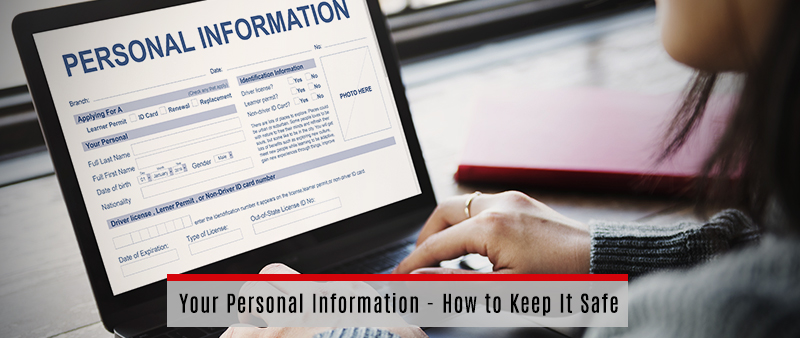
Now that we’re officially in the third decade of the 21st century, identity theft and cyberattacks are continuing to grow exponentially. It’s not just that theft tools are becoming more sophisticated – there are more and more methods now in which your personal, private information can become compromised. The growth of social media, mobile apps, and the online marketplace has not only made our lives more convenient and interconnected, but also more at risk as well. It’s not always easy to ensure your information is secure, especially when taking an “personality” quiz via Facebook can put your information in the hands of an unknown.
If you feel like you need to boost your security when it comes to your personal data, or if you’re just looking for a refresher on keeping safe, here are a few tips:
Don’t be reckless with your social media accounts. While users are able to adjust their privacy settings for their profile and posts, it’s not a guarantee that you’re still 100 percent safe, so take caution with sharing or clicking on suspicious links, especially quizzes through apps like Facebook that have been known to mine data. When creating an account, make sure to create a password without any identifying words or numbers (i.e. a birthday or anniversary, place you were born, pet’s name) for better security. Also, on apps like Facebook, you’re able to share your address and phone number, as well as “family” members, previous places of employment, and schools you’ve attended. Sharing this information, even in a limited space, can put you at risk.
Focus on both online and offline personal security. While there is a heavier focus on keeping your online information secure, what you do offline can also have an impact. When you receive bank statements, bills, or credit card offers in the mail, shred them before discarding them (small office shredders are relatively inexpensive if you want something more thorough). Don’t share your personal information over the phone unless you’re certain you’re talking to a trusted source, such as your healthcare provider. If you’re getting rid of membership cards or expired credit cards, cut them up before throwing them away.
Protect your family’s information, especially financial. This also applies to your children’s information. Identity theft such as taking out loans with stolen information, or opening a credit card account, is one of the more common types of fraud out there. Checking your family members’ credit score on a regular basis can help you find any discrepancies that might be a result of identity theft or fraud; some heads of household use a real-time, 24/7 credit monitoring service for this purpose.